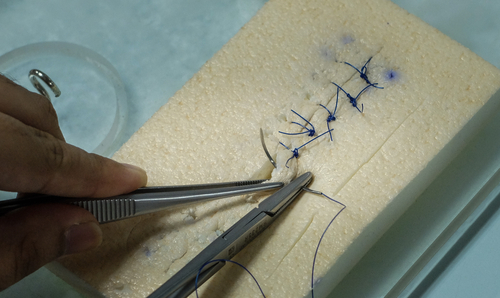'Black box' recorder tracks surgical skills in the operating room
University of Southern California Health News Jan 13, 2018

Has your doctor mastered the latest minimally invasive technology for surgery?
To help answer that question, researchers at Keck Medicine of USC worked on a tool similar in concept to an airplane’s flight recorder.
The “black box” recorder captured data that could be used to discern the difference between novice and expert surgeons. It can be attached to a robotic surgery system during radical prostatectomy procedures, the most common treatment for prostate cancer. The results of the study will appear in the January edition of The Journal of Urology.
“Robotic surgery has been widely adopted by urologic surgeons, but methods of assessing proficiency vary widely between institutions,” said lead author Andrew Hung, assistant professor of clinical urology at the Keck School of Medicine of USC.
In order to be credentialed by institutions to use the robotic system, surgeons must be evaluated by their peers for a handful of procedures, he said, but the evaluations are not ongoing, and sometimes evaluators don’t agree on what constitutes proficiency.
Creating a sustainable, objective method for evaluating surgeon proficiency and standardizing credentialing is a way to help ensure patient safety, Hung said.
Future studies
The recorder used in the study, called the dVLogger, captures both anonymized video and movement data. Developed by Intuitive Surgical, the research tool can attach to the company’s da Vinci Surgical System, a robotic surgical platform approved by the US Food and Drug Administration for general laparoscopic surgery.
“The dVLogger records the surgeon’s movements, capturing where the instruments are and how the surgeon is moving the instruments,” Hung said.
To test the recorder’s ability to measure proficiency, four basic prostate surgery steps were analyzed. Data from 100 procedures performed by both novice and expert surgeons were recorded. Results showed that novice and expert surgeons could be identified by measuring time to complete operative steps; distance of instrument and camera travel; and frequency of camera movements.
Hung said that future studies will explore how the recorded performance data compares to clinical outcomes.
“We now have an opportunity to put surgeon proficiency under the microscope and see what role it plays in patient outcomes,” he said.
-
Exclusive Write-ups & Webinars by KOLs
-
Daily Quiz by specialty
-
Paid Market Research Surveys
-
Case discussions, News & Journals' summaries